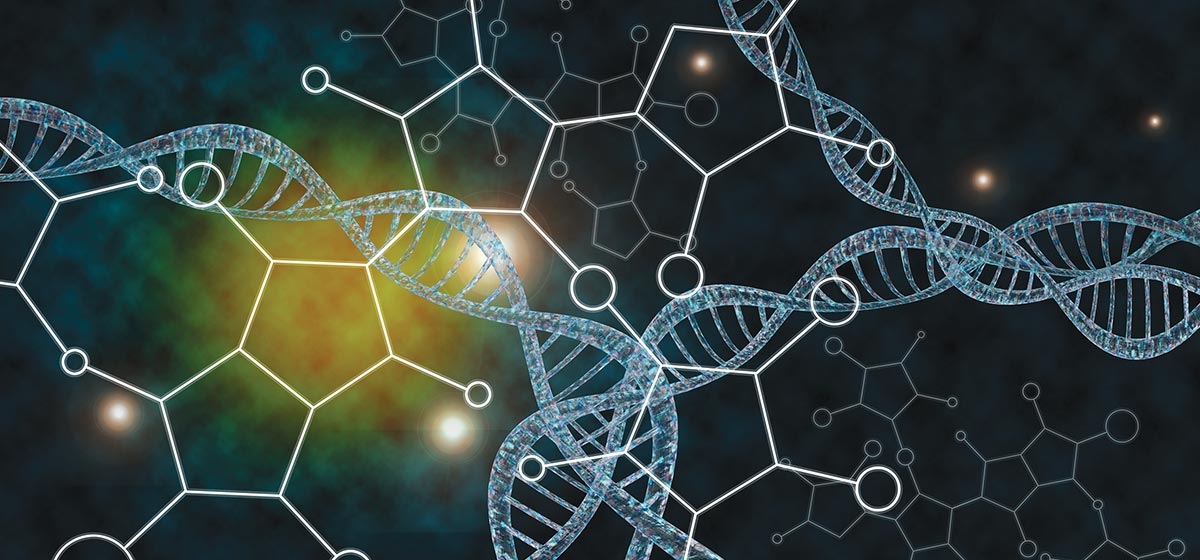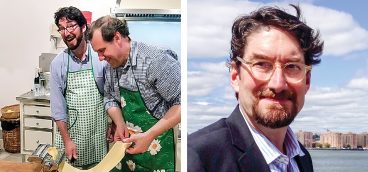Looking Inward, Way Inward

Until about six weeks ago I never fully appreciated that, just like all the strange characters in science fiction movies, I am a mutant.
It all began in June when a friend mentioned his results from a genetic testing outfit. A few years ago, I’d considered paying one of the services to find out my hereditary background. Like the guy in the TV ads, maybe I’d find that I should trade in my lederhosen for a kilt or a Samurai sword. But, the truth was, I already knew my family history, so why spend the money?
My friend, however, had been contacted recently by the genetic testing service he’d used—23andMe—to see if he wanted to know more. In April, the FDA authorized them to release more specific genetic disease marker information. Did he want to know? He said yes, and they asked if he was sure, saying that such information could be unsettling. That gave him pause, but he still said he wanted to know. And the information came back that he has the genetic variants for Alzheimer’s, apparently meaning it’s probable he’ll get the disease.
Something like that places in a different light the age-old question: if you could know, would you want to? Now, it seems we can get an indication of our chances of getting some serious diseases, including Parkinson’s. My mother had Parkinson’s and so did her father. What to do?
I ultimately decided to pay the $199 and find out. I went online, ordered the kit, and it came in the mail. I spit into a vial, put the package back in the mail and waited.
In about a month, an email said my results were ready. I went to the web site, directly to “Genetic Health Risks” and quickly scanned. No for Alzheimer’s. No for Macular Degeneration. And No for Parkinson’s. No meaningful risk for anything. Of course I was relieved. But the fact is, that doesn’t mean I won’t get these things. It just means that I don’t have the genetic variants for which they now have a test. Still, I’ll take it.
On the ancestry part? No surprise—I’m keeping my lederhosen. But there were a number of other things that were marginally interesting. Of the people they’ve tested, 83 percent have more Neanderthal genes than I do (whatever that means). I’m unlikely to have freckles, a unibrow, upper back hair or be a skydiver. I’m likely to think cilantro tastes like soap, have blue or green eyes, and like salty over sweet.
But since I already knew those things, I was ambivalent about my investment until I learned the most interesting part. And that, as it turns out, isn’t something they tell you. But you can download the raw genetic data and plug it into another site (I used geneticgenie. org), and it will give more specific information on, essentially, how and where you’re a mutant.
Without getting too technical (because I can’t), I learned that of the 26 genes and variations that came back, most of mine were either colored green or yellow, meaning I was more or less normal. The two that were colored red, however, are where things got interesting.
Unlike most people, I have a couple of mutations affecting my prefrontal cortex, the part of the brain dealing with complex planning, personality, emotion, expression, and impulse control, among other things. This anomaly means my prefrontal cortex is swimming in neurotransmitters— dopamine and norepinephrine, among them—more than most people.
It turns out that mutants like me tend to: Get more pleasure out of life, be more creative, verbal and exploratory, have a higher IQ and better working memory, and have a decreased risk of alcoholism. On the other side, we also tend to feel greater pain, be more aggressive and impulsive, take more risks, function worse than others under stress, have more anxiety, and be more likely to be a cocaine fiend.
That’s my story, and—uh oh—my wife says it’s generally accurate. But as it turns out, each of us is our own little snowflake of mutation. The average person apparently has about 400 genetic mutations, and if you don’t have them, you’re in trouble. In fact, those of us who are alive are the ultimate mutants, and Darwin would say that’s why we’ve survived the millennia.
The implications for this brave new world are difficult to exaggerate and, at this point, to comprehend.
A whole new medical field is exploding. Whether you call it personalized medicine, precision medicine, or genomic medicine, the idea is that instead of a single standard of care, we should and will be treated—with medicines or supplements—according to our genes and personal mutations. In order to gain more precision, science needs to test a lot more people, and it turns out that Pitt is spearheading a national project to get a million participants and develop an enormous genetic database (call 412-383-2737 if you’re interested in taking part).
As I understand it, our genes are not quite our destiny, but they do seem to be our tendency. And though I suspect today’s scientists would object, I find genomics to be a fascinating modern complement to a much older “science”—astrology. For some 4,000 years, people have sought to divine their personal characteristics and destinies from the movement of the sun, moon and planets. Now, we’ve gone from the telescope to the microscope, from the infinitely distant to the infinitely small.
Some see danger in this new science. Some see opportunity. Both are right. But I don’t think anybody’s going to be able to stop this train. In the meantime, don’t be surprised when the hot, new cocktail party pick-up line becomes “So, what’s your mutation?”




